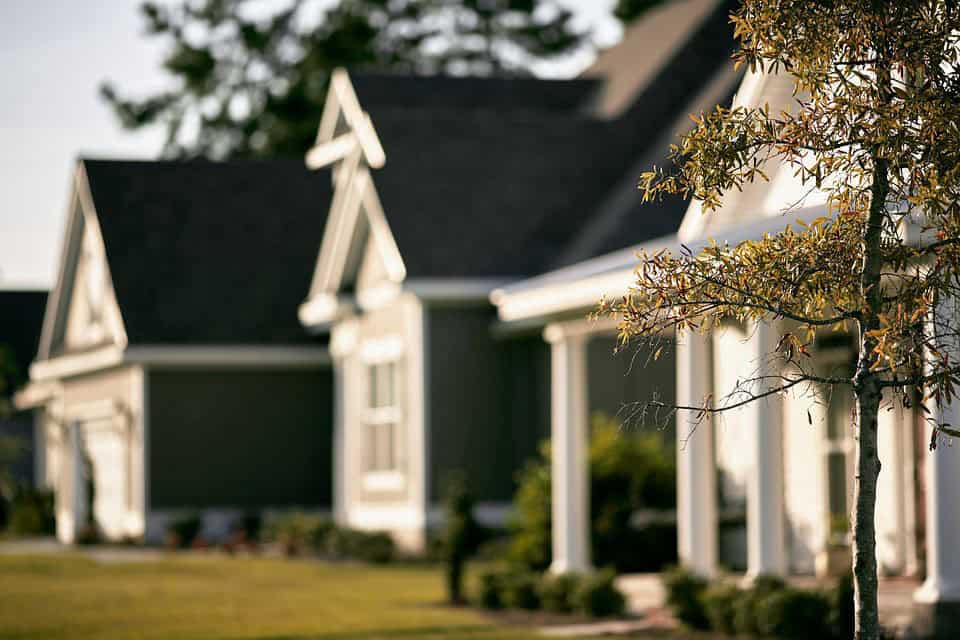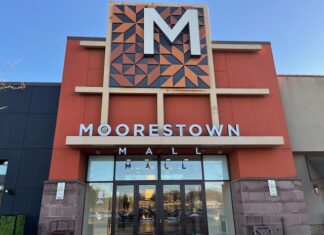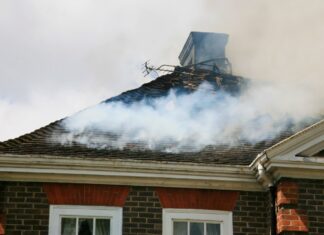
The Nov. 28 MooreUnity information session had residents engaged in conversations about affordable housing.

A handful of people came together on Tuesday, Nov. 28, in the sanctuary of First Baptist Church to engage in a discussion about affordable housing. For those in attendance at the MooreUnity information session, the night centered around one theme — breaking down misconceptions.
MooreUnity is a civic group whose vision statement is to “raise awareness of divisive forces in our community and promote inclusion by building bridges across those divides.” Lauren Jones, a member of MooreUnity, kicked off the discussion by thanking those in attendance for wanting to learn more about affordable housing.
“Our plan for this evening is to talk about affordable housing and become better educated about some basic principles of it,” Jones said. “We know that affordable housing has been a very hot topic in Moorestown, in our state, in our nation, and we appreciate you being here.”
When the Council On Affordable Housing existed, Moorestown Township submitted its affordable plans to the state agency. Following COAH’s disbanding, towns have to petition the court for approval of their affordable housing plans, with developers and other interested parties intervening on these proceedings through declaratory judgment actions.
In 2005, the township filed a declaratory judgment action with the superior court of Burlington County. Since then, Fair Share Housing Center became an intervenor, or a defendant in that case. The number of affordable housing units Moorestown will be required to build is what is in litigation.
The Rev. Eric Dobson, staff outreach coordinator at Fair Share Housing Center in Cherry Hill, discussed common misconceptions about affordable housing to those in attendance at Tuesday’s information session.
Dobson said a common “myth” about affordable housing is it causes property taxes in the area to go up. He said the reality is New Jersey has the highest property taxes in the region, due predominantly to financing local school districts. He said New Jersey has 565 separate municipalities and more than 600 school districts, and the largest portion of residents’ property tax dollars go toward the schools.
He said if New Jersey consolidated these municipalities, then taxes would decrease. He said that solution, while simple, would be a “political nightmare.”
“You have all these separate kingdoms, and no one wants to give up their power,” Dobson said. “You know how New Jersey can reduce their taxes? Consolidate.”
According to Dobson, development in any town is driven by market value. He said when New Jersey Magazine named Moorestown one of the top 100 places to live, it put Moorestown on the map.
“What drives development? The market value, supply and demand,” Dobson said. “When you have a location that’s in demand, people want to live there and developers want to develop.”
Dobson said where you live determines how educated your kids will be and how safe they’re going to be. He said the problem occurs when families who want to live in places such as Moorestown that will provide good schools and safe neighborhoods, but the demand restricts their access.
During his presentation, Dobson gave an overview of how suburbs developed and became segregated through racist and exclusionary practices, such as redlining. He said if there is no emphasis on diversity, any community will gradually become segregated.
He cautioned that no community should be comprised of entirely wealthy residents. Dobson said under the Mount Laurel doctrine, a Supreme Court ruling that prohibits the state and municipalities from using their land use powers to discriminate against the poor, municipalities are required to represent all the constituents in their community.
“First of all, it’s not healthy; second of all, it’s a reflection of what America’s past was,” Dobson said of the discriminatory practices that led to community’s being segregated by race.
Dobson emphasized that affordable housing does not mean providing people who do not work with homes. He cited the example that people who occupy affordable housing are often the individuals working the local pizzeria or Starbucks in town.
“Affordable housing in New Jersey under the Mount Laurel decision is very low income, low income, moderate income, housing for seniors and special needs,” Dobson said.
Ultimately, Dobson said the “tragedy” is when residents get squeezed out as home values climb. He said the Mount Laurel doctrine says residents who were already living in these towns deserve the right to stay.
Meredith Butts, a member of MooreUnity, said through her personal research, she has learned that for individuals earning a low income, the beginning stages of building wealth starts with property.
“Being able to to purchase a home in a good community is a step toward making a better life for yourself,” Butt said.
Attendee Kathleen Sutherland said in the past, groups such as Moorestown Ecumenical Neighborhood Development, a nonprofit that develops, builds and manages affordable rental housing, have ensured Moorestown is an inclusive community, and the goal should be to ensure Moorestown continues to be inclusive moving forward.
Pastor Jonathan Leath said there’s a small group in town and there will always be small groups that don’t want progress out of a fear of the unknown. He said it seems like the biggest hurdle for the community is the misinformation people have about affordable housing affecting schools or property values. Dobson said empirical data has shown this not the case.
“I think our job as part of MooreUnity is you know that you’re fighting a monster that doesn’t really exist,” Leath said of these misconceptions. “We’ve missed out on so many years of experience growing individually as a town. It’s just really a shame.”
Attendee Jeff Jones asked Dobson what other towns in New Jersey are doing in regard to affordable housing and how Moorestown is fairing in comparison.
“Are we way behind the eight ball now?” Jones asked.
Dobson said out of 300 towns, 161 municipalities in New Jersey have come to an agreement with Fair Share Housing on the number of units and zoning, and the court has signed off on their agreement. He encouraged those in attendance to ask their town officials why they haven’t settled yet.
“We have not settled with Moorestown,” Dobson said. “This is something Moorestown could resolve if they want to. This could be resolved if they want to give up this fight.”
For more information on MooreUnity, visit mooreunity.zohosites.com.









